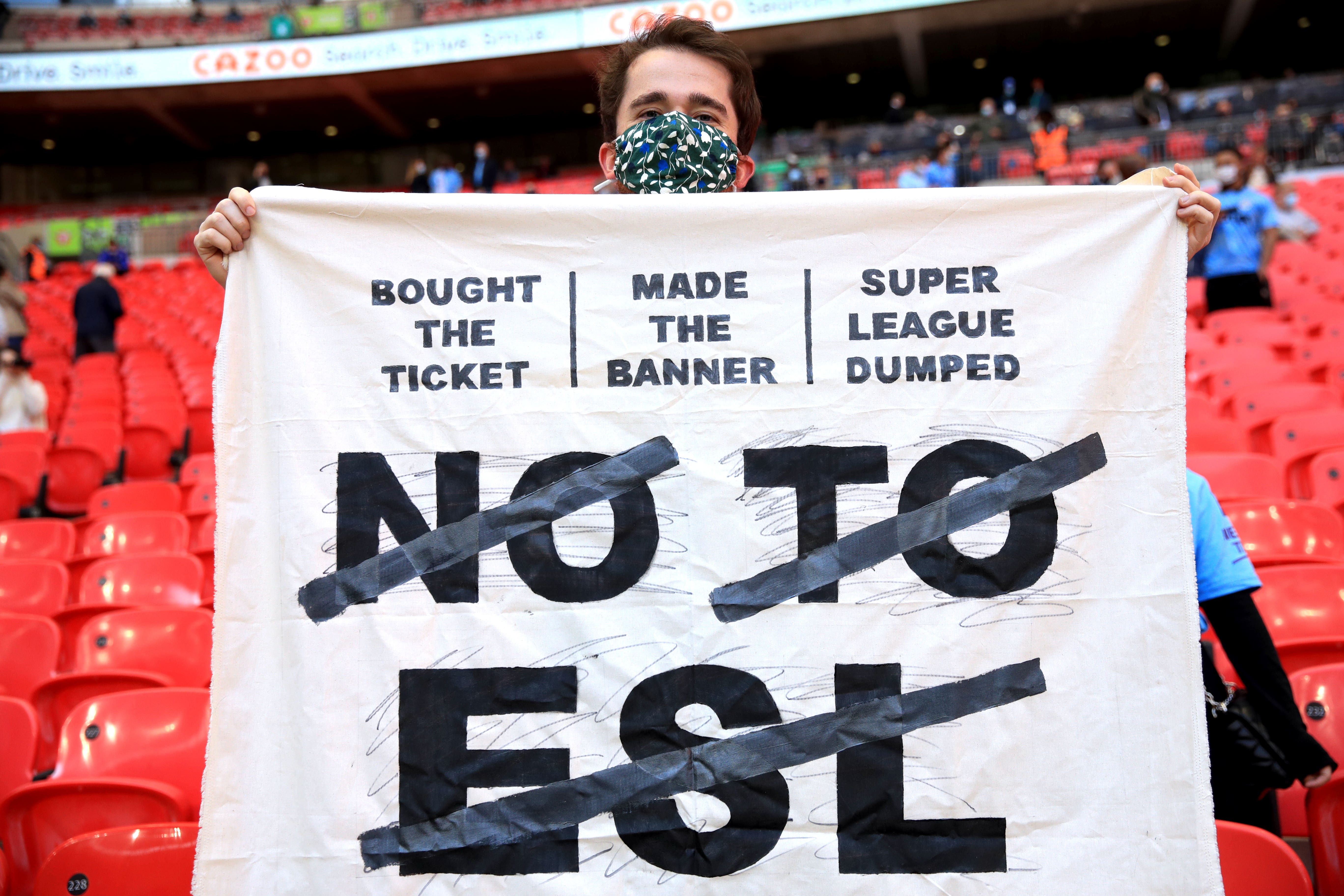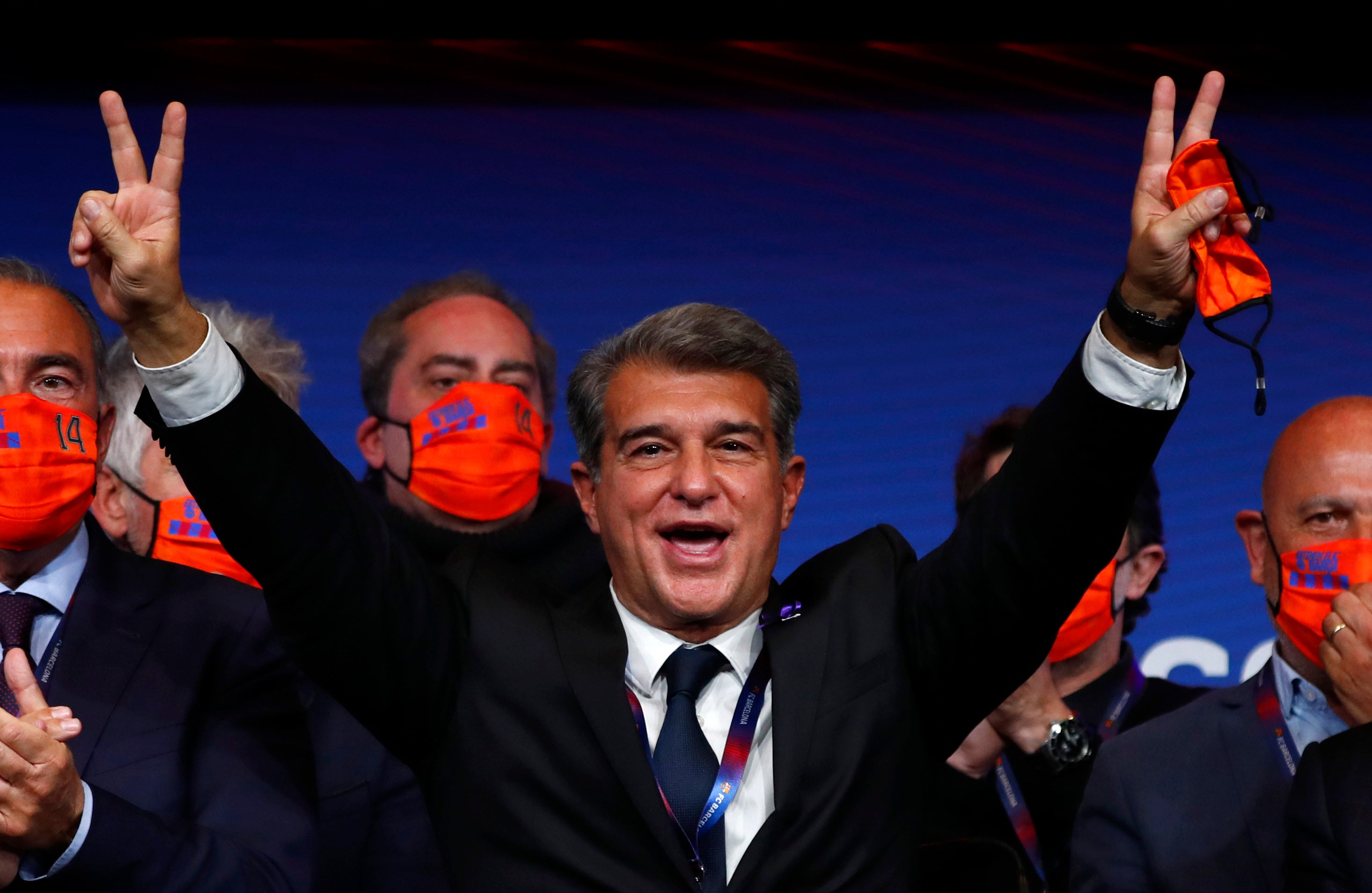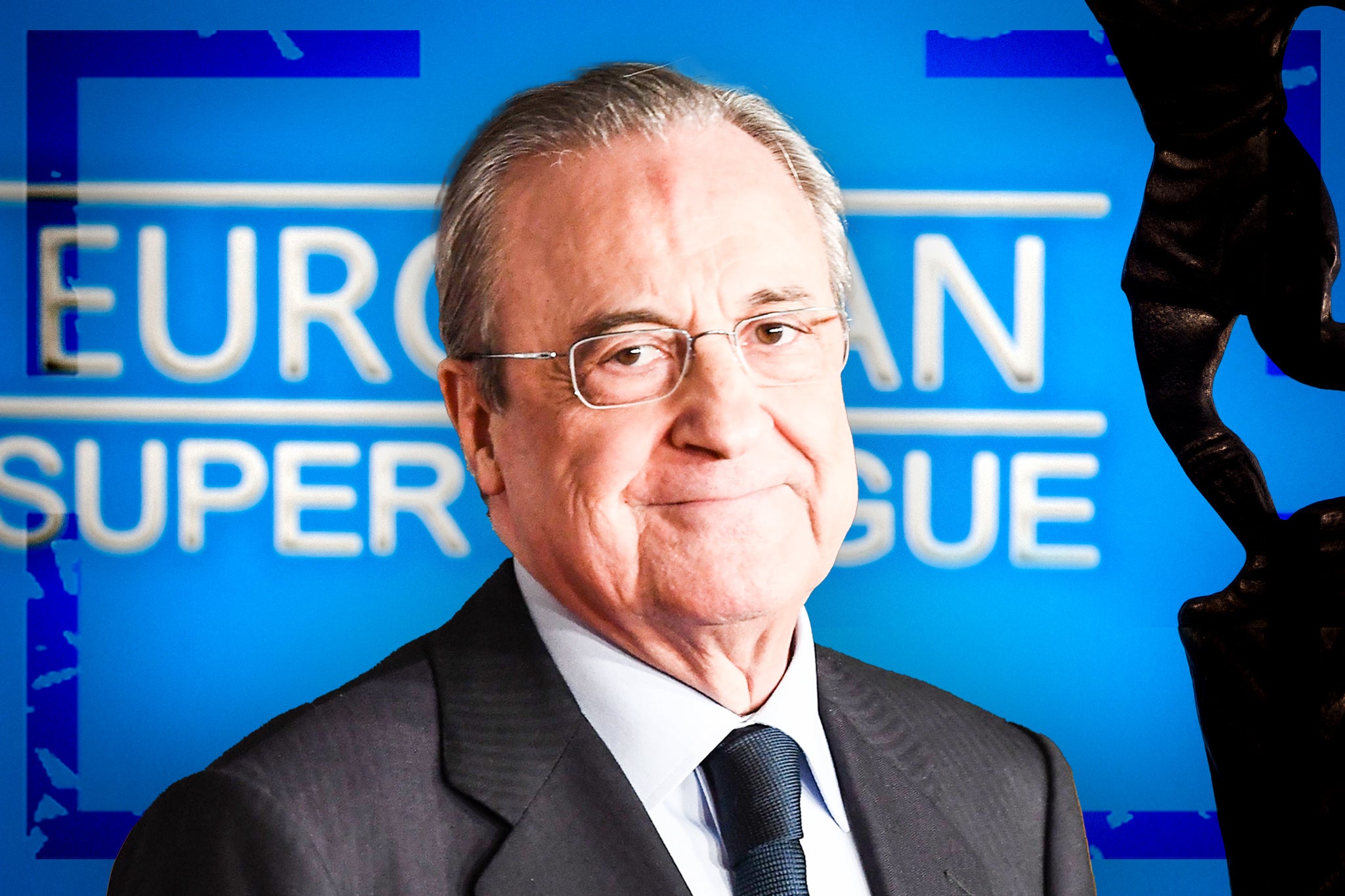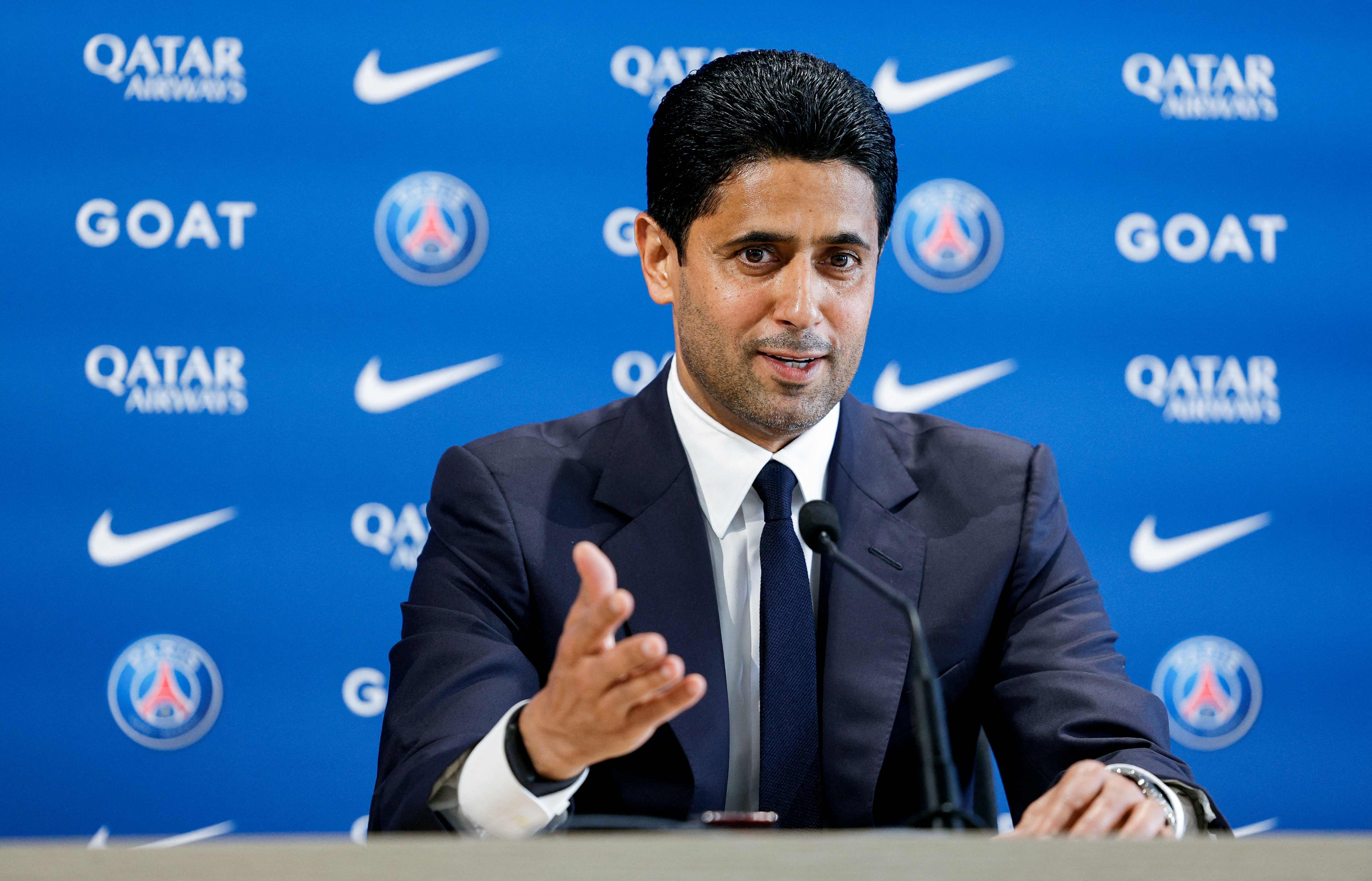Why it’s vital that Uefa and Fifa win the fight for football’s future
After the European Super League revival, the biggest clubs – led by Barcelona and Real Madrid – want to take control of the game but Miguel Delaney explains that the dangers would be huge


Your support helps us to tell the story
From reproductive rights to climate change to Big Tech, The Independent is on the ground when the story is developing. Whether it's investigating the financials of Elon Musk's pro-Trump PAC or producing our latest documentary, 'The A Word', which shines a light on the American women fighting for reproductive rights, we know how important it is to parse out the facts from the messaging.
At such a critical moment in US history, we need reporters on the ground. Your donation allows us to keep sending journalists to speak to both sides of the story.
The Independent is trusted by Americans across the entire political spectrum. And unlike many other quality news outlets, we choose not to lock Americans out of our reporting and analysis with paywalls. We believe quality journalism should be available to everyone, paid for by those who can afford it.
Your support makes all the difference.In the immediate aftermath of what was already termed “the Super League verdict”, the many involved parties attempted to seize the moment. There has rarely been so much excitement over language so dry.
The European Super League themselves, fronted by A22 but driven by Florentino Perez, quickly declared victory as well as the belief this was “a historic day for football”. This was based on the European Court of Justice describing Uefa’s previous 2021 rules as “unlawful”. Despite how resounding this apparently was, there wasn’t much reflection on it. The Super League willingly moved the discussion to what the format of their new competition would look like.
They announced 64 places but had the inconvenience that only two clubs were still confirmed to be in it. It was notable that nobody new came forward to affirm support for the project. This was despite the supposed significance of Thursday’s ruling now allowing clubs to “think freely” without sanction, according to the project’s John Hahn.
In fact, the fine details of the ruling mean that any new project still has to seek authorisation from Uefa. The governing body’s regulations just have to be consistent with European law. There was no recommendation for the break-up of Uefa, which the Super League had been hoping for.
Confederation president Aleksander Ceferin should really have been broadcasting this to the world, but Uefa’s messaging seemed so small-scale. The “press conference”, which really amounted to key figures grandstanding on the Super League over and over before some limited questions, relentlessly focused on A22 when the issue was really much bigger than that.
Of the clubs that did issue statements, then, they made sure to be on the right side of history this time.
The future is what this is all about, of course. It is not so much seizing the moment as it is seizing the game.
The sport’s driving force for some time, and especially since it became a global mega-business, has been about who gets to run and own the product.
This is the essence of the Super League project, no matter what they send out in all other press statements. It is to remove Uefa and for the biggest clubs – namely, Barcelona and Real Madrid – to take control. Nobody should be under any illusion about that, despite the sleight of hand of introducing the new format as everyone was looking confusedly at the European Court of Justice’s oddly-constructed press release.

There is also a circular problem here, that has created a negative cycle from which the game is struggling to escape.
For all that Barcelona and Madrid look after themselves, there are legitimate reasons to be aghast at Uefa. The body has overseen the creation of a landscape where, in order to even have a chance of competing in the Champions League, you have to be a big club in a big city in a big country. This applies to about 15 clubs, 12 of which joined up for the original Super League. The rest of Europe has developed into a football wasteland, and all because of arcane rules on borders that are no longer fit for purpose. None of this is reflective of what is supposed to be a competition representing a continent.
This has resulted in the Champions League becoming such a procession for over half the campaign that they have to change its entire structure for next season. The Super League have consistently been deriding the new “Swiss System” and how nobody is happy with it.
Yet who were the chief architects of the Swiss system? Why, the clubs who broke away for the initial Super League, again led by Madrid and Barcelona, of course. The landscape only looks like this because of how they left it. Madrid and Barcelona are railing against the world they created.
It is exactly the same with the Premier League. Everyone else in Europe fears its financial power. This is where there has been a real opening for the Super League to generate support and new members. The most common line you hear in European football right now is “something must be done about the Premier League”.
But why has LaLiga fallen so far behind, when just a few years ago it was considered the pinnacle of sport? That is because of what people in European football call “Spain’s lost decade”, whereby Barcelona and Madrid ensured they accumulated 90 per cent of all broadcasting fees. It was in direct contrast to the Premier League’s redistribution regulations and has ensured LaLiga has gone in the opposite direction.

Is this really who football should be handed over to? The evidence is all there. This is supposed to be about competition law, but every step taken by the main parties driving this has been to make European football less competitive than it’s ever been.
Who’s to say they won’t eventually seek to break away from the breakaway? That’s what happened with the Super League six in the Premier League. That is the fundamental nature of these sorts of competitions, that are prone to concentration by design. Someone will eventually have to be the Brentford or the Osasuna of the Super League.
And, if it gets to that point, there’s no going back. You might be giving the keys to the clubs today but there’s no guarantee they don’t eventually give them to private equity or an autocratic state.
This, remember, is the core of European football.
It is why, for all of the profound problems with Uefa and Fifa, it is better that the game stays with them. They are still ultimately regulatory bodies. They can be reformed. Giving away European football in its entirety cannot be reverted.
On that, there was a similarly laughable moment when Ceferin made a typically pompous proclamation. “Football is not for sale - we have shown that many times”.
Next speaker up: Qatar’s Nasser Al-Khelaifi. Through his country’s wealth, he has become: the president of one of the most powerful clubs at Paris Saint-Germain; group chairman at one of the most influential broadcast groups in beIN Sports; president of the European Club Association and a member of the Uefa Executive Committee. The current European champions – Manchester City – are meanwhile owned by Abu Dhabi as the game struggles to adapt to the influence of the Saudi Pro League.

Football may not be for sale but only because so much of it has already been bought up. Ceferin and Fifa boss Gianni Infantino have been willing partners with any number of autocratic states. This should really be the main lesson of Thursday, that has largely been overlooked. Ceferin indeed completely glossed over the question when directly asked.
Football is in dire need of governance reform. The executive presidential structure just doesn’t work, particularly for what it’s become. There’s too much power invested in individuals, without any accompanying democracy.
One of the greatest surprises of the day was that a governing body actually held a press conference, limited as it was. That hasn’t happened through a series of tournament awards, elections or even developments like the Premier League’s decision on the Everton case. It often feels like there is a complete lack of accountability, which has left football subject to so many problematic influences. This has been compounded by such a lack of institutional protection.
This is also where Thursday could have been a landmark in an under-appreciated way. As one executive quipped, "the real killer for Uefa is the thought of acting transparently."
It is now clear, after years, that the European Union is beginning to take an interest in a legal definition of sport. Even the Super League verdict touched on that, in recognising the importance of sporting merit. There were even more optimistic readings in how the judgement addressed unequal redistribution of Champions League prize money and a separate ruling looks like it will demand more homegrown players.
The next step should be to look at the structure of bodies like Uefa and Fifa, and demand reform. That’s how the future should really look.
Join our commenting forum
Join thought-provoking conversations, follow other Independent readers and see their replies
Comments